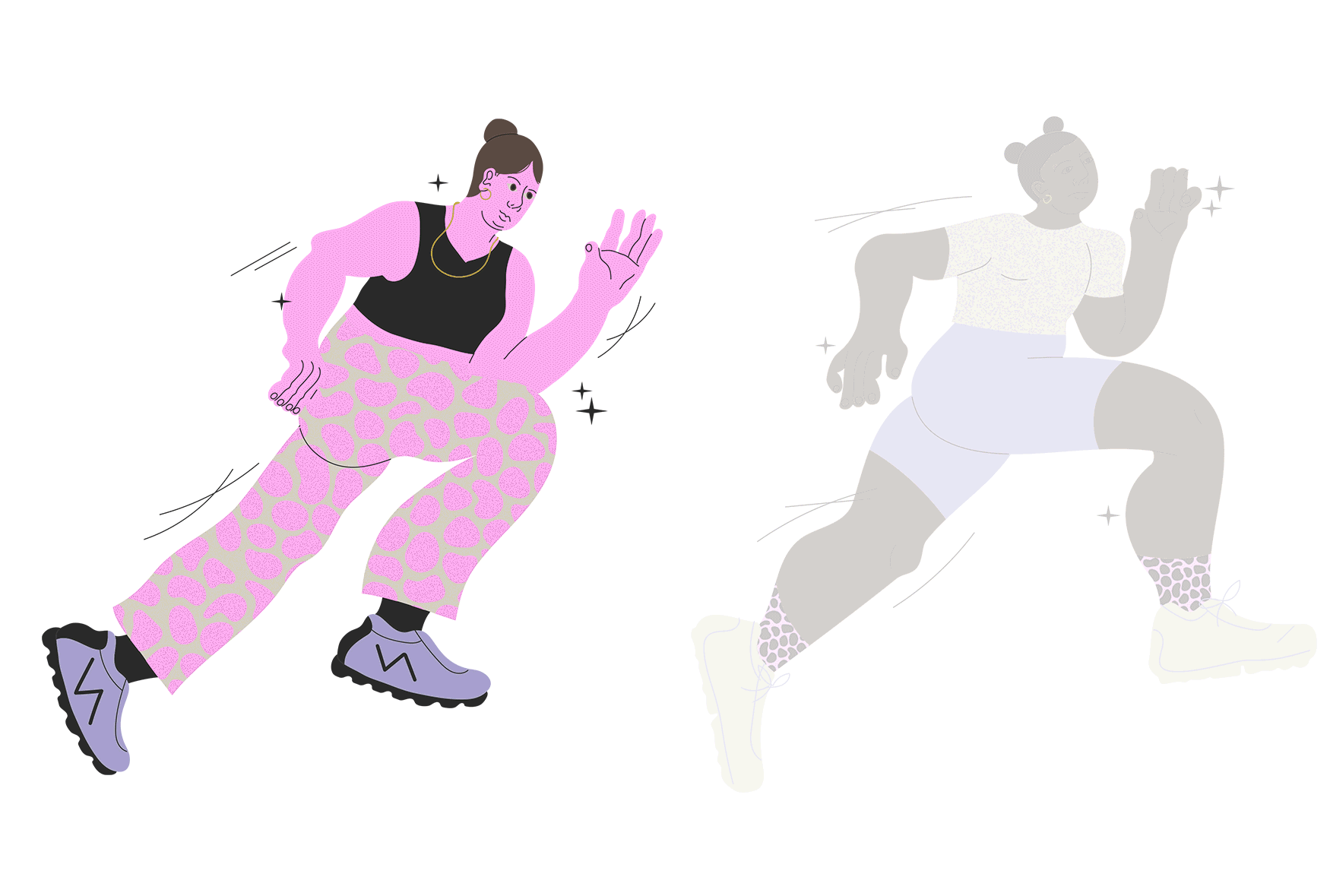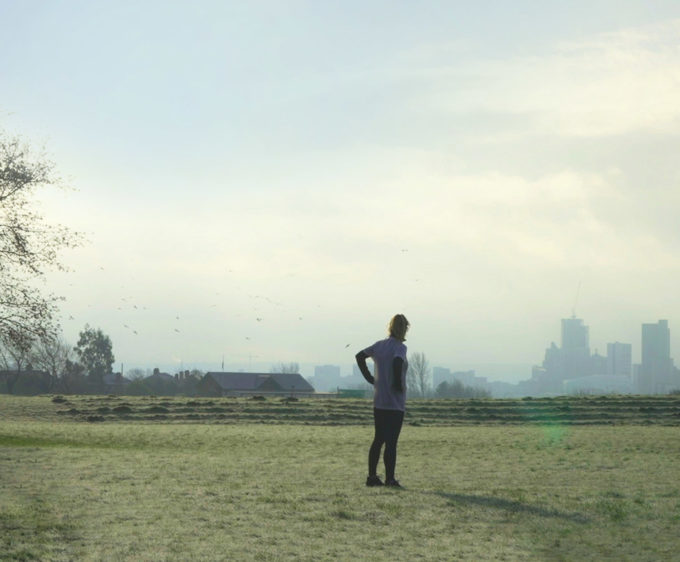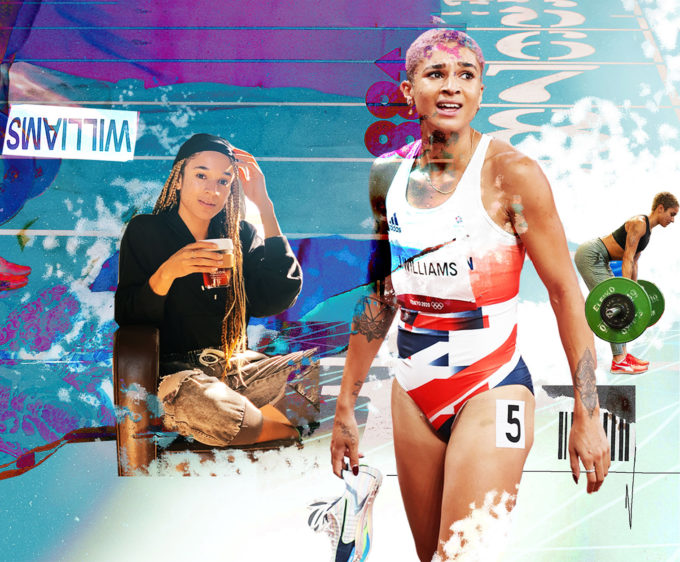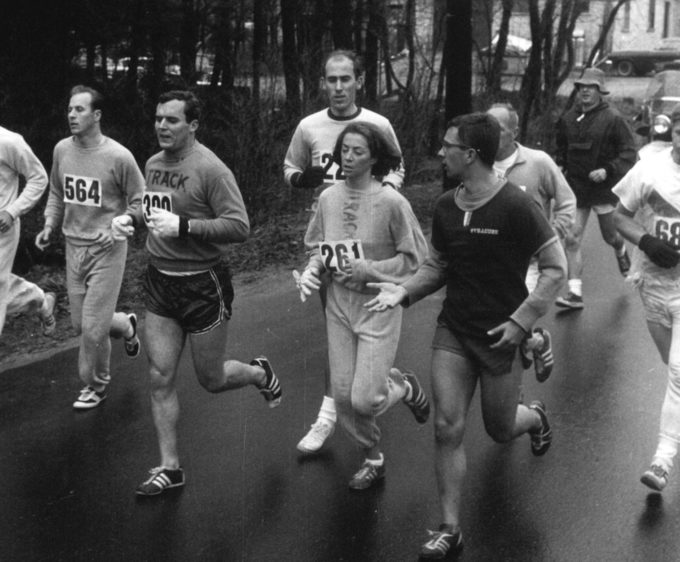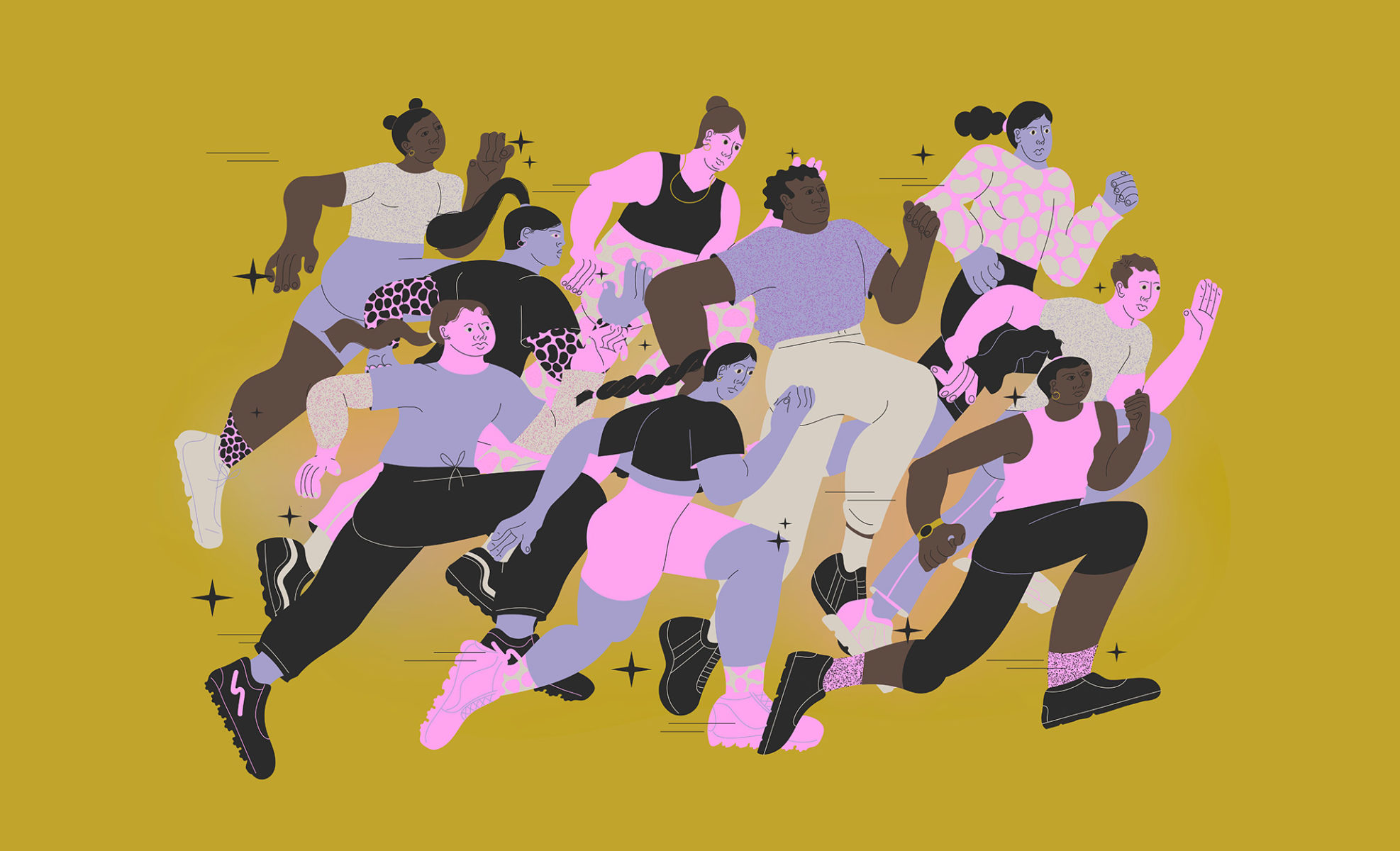
Every Second Counts
How a London sprint club is celebrating speed. Meet the trailblazing women devoted to reframing this type of running with an inclusive approach
By Amy Abrahams
Illustration by Sarah Cliff
How to make someone feel like they’re winning, even when they’re losing? This was one of the challenges former track-athlete Sarada Ochen faced when she set about creating a sprint club that was open to all levels. “Sprinting can be so serious,” she said. “It always has to be about your ‘best this’ or your ‘best that’, and it’s often elite and exclusive. So I wanted to create something that was inclusive. A club that was for everybody, that wasn’t reliant upon how fast you are, because when you do that it becomes very stressful.” On a mission to help people “build speed through togetherness”, Dash was born – a trailblazing sprint club devoted to the thrill of fast.
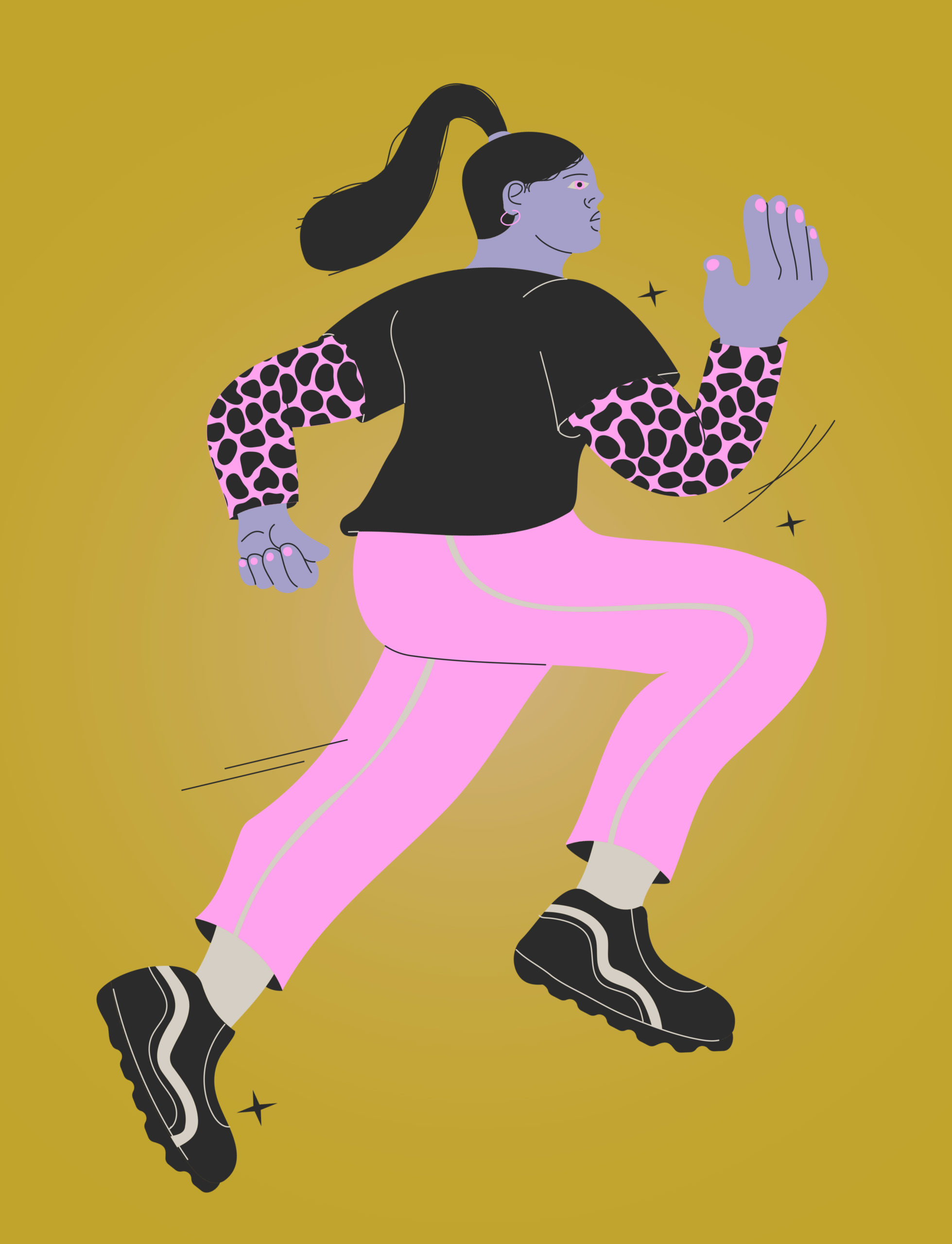
The club, which meets twice a week on the track at Paddington Recreation Ground in north London, was founded in 2017 by 36-year-old Sarada, who has been sprinting for more than 20 years and competed internationally in the 400m at a junior level. For her, few things compare to the rush of sprinting. “It gives you a high and it’s fun. It makes you feel free,” she said. “For me, it’s almost like meditative practice. It clears your mind because all you can think about is what you’re doing at that moment.
However, unlike distance running, which has soared in popularity over the past 15 years – with events ranging from 5Ks to ultra-marathons drawing hundreds, often thousands, of participants – Sarada noticed that the London sports scene lacked space for people to sprint without pressure. Why weren’t there sprint clubs just like Park Runs or spin studios or boxercise classes? Why hadn’t sprinting made the jump from pro sport to popular pastime?
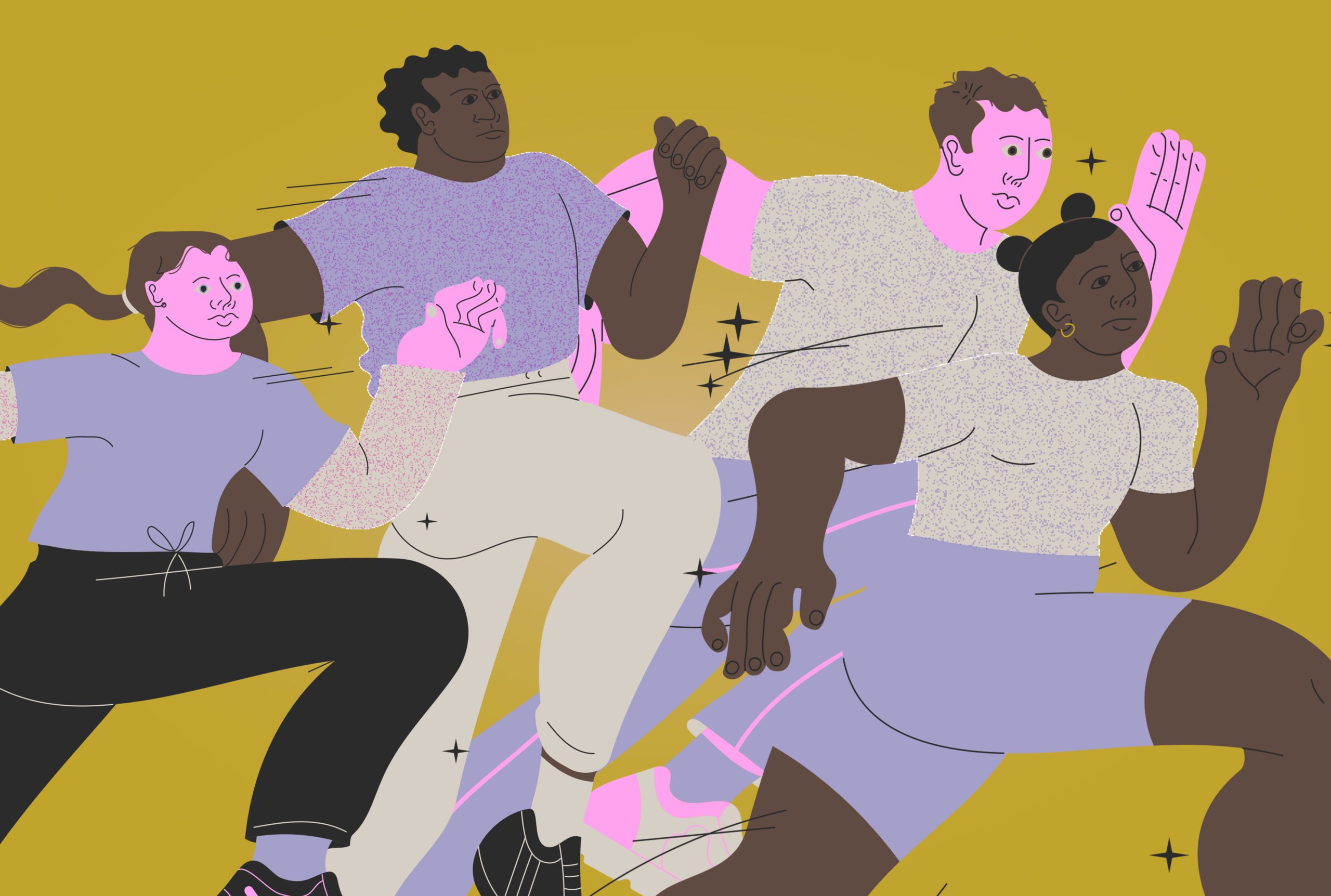
In part it’s because sprinting has a PR problem: for many people, just thinking about it is enough to fast-track them to anxiety. Something several Dash regulars can relate to. “I have really bad childhood memories of sprinting,” said Becca Burns, 29, who initially joined Dash to support her marathon training. “I remember being the last to cross the finish line at sports day and feeling self conscious as my peers accelerated away from me during races.” Thirty-five-year-old Emily Alland had similar experiences: “I would get roped into races last-minute on sports day, then feel like I annoyed people when I came last.”
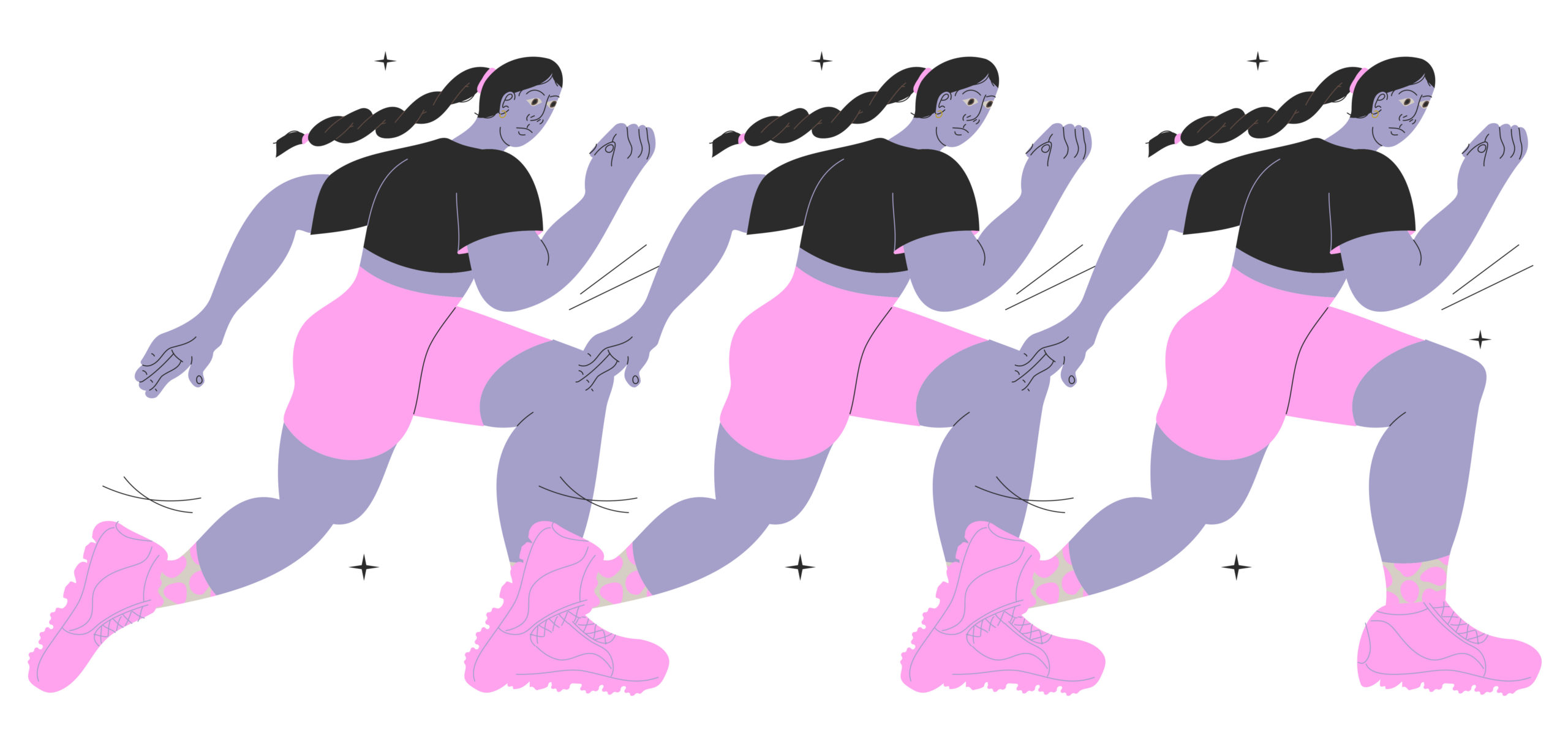
Countering these feelings was a crucial aspect of Sarada’s vision. “We have designed Dash in a very specific way so that everyone can run together without anyone feeling like they’re always behind,” she explained. Sessions are tailored to the specifics of who is attending, and focus on skill development and technique in a way that participants very rarely feel they’re in competition with anyone but themselves. “Naturally, if you’re in a class – which can be for up to 15 people – someone is going to come at the back, but it’s about reframing the experience so you’re focused on your own goals.”
This emphasis on personal experience is how distance running has become mainstream in a way that sprinting still feels niche, she pointed out. “With marathon running you can be any level and take part. Because of the volume of people involved you can tuck into the crowd,” said Sarada.
“Whereas as soon as you say the word ‘sprinting’, people think of a powerful Black guy running in the 100m, which is not something that everyone can identify with.”
Race, class and gender bias all play their part in sprinting’s perceived inaccessibility, as Sarada explained “I’m not saying white people don’t think sprinting is for them, in the sense that it’s only a Black person’s sport, but they often rule it out to even try. On the other hand, “distance running is often represented as very white and middle-class, and there can be a certain smugness with it, too.”
By laying down the track to make sprinting accessible to the everyday athlete, Sarada has created a one-of-a-kind club that attracts a broad audience – from absolute beginners to footballers preparing for the new season. And while it’s open to all genders, Sarada is pleased to observe an increase in women participating, with an even split – or female majority – most weeks.
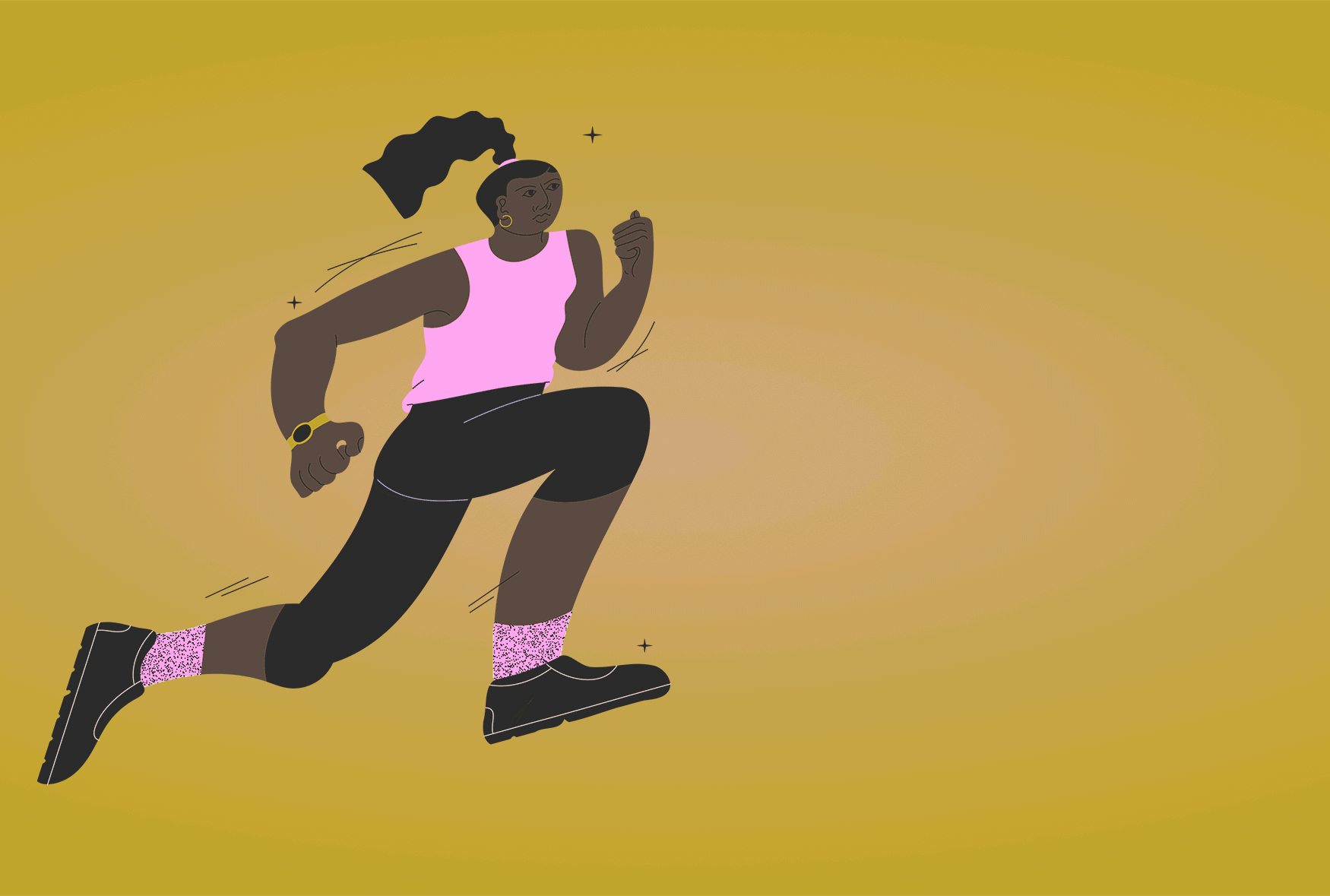
Encouraging
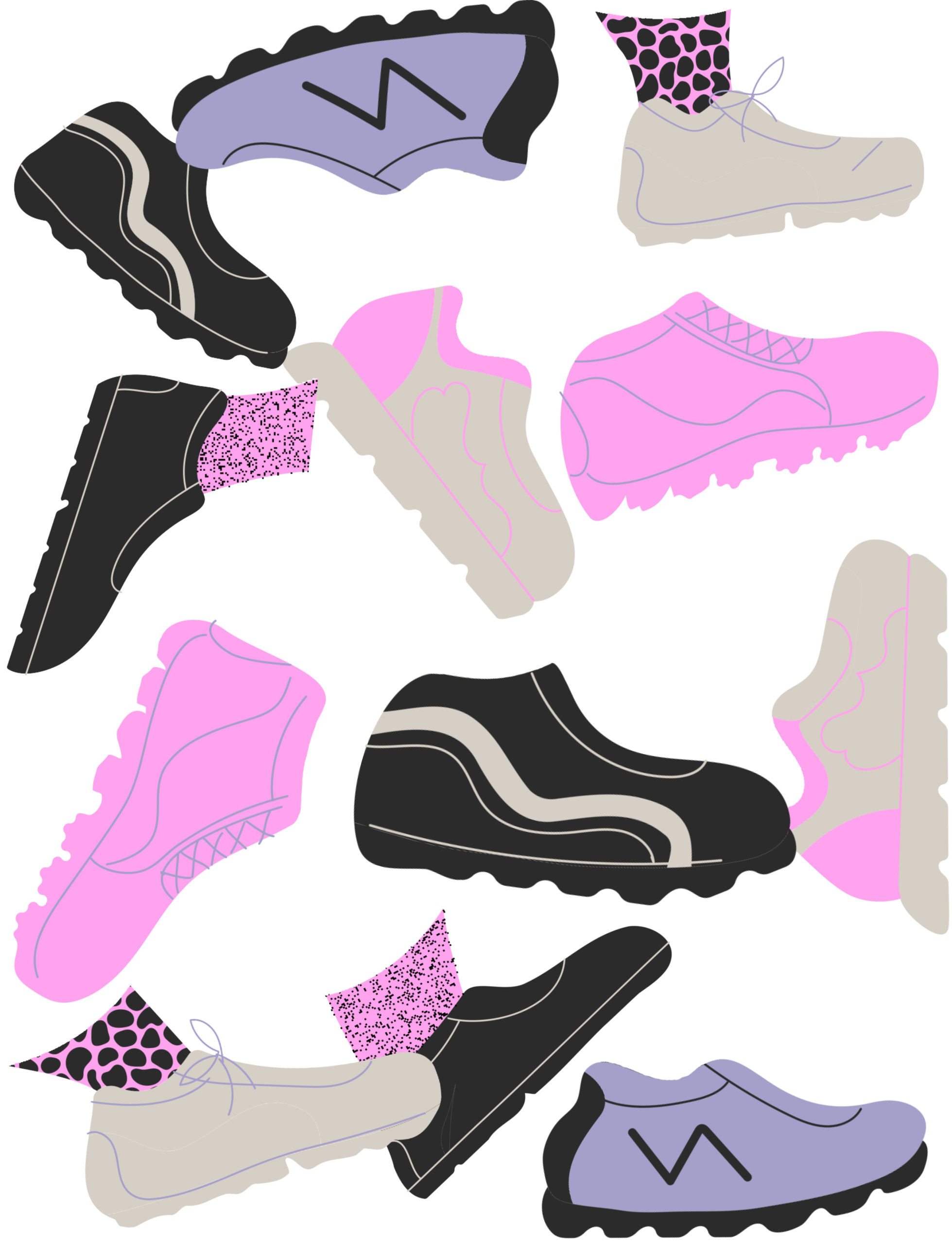
“Sprinting can seem intimidating for many women,” she said, and it’s an attitude that’s often planted young. “There’s a massive drop in participation for girls, especially once they hit 16-years-old. Body insecurities can play a huge part in that.” Even with amazing role models right now such as Dina Asher-Smith, the fastest British woman ever, her performance on the track can seem so far removed from someone just starting out on their fitness journey. “Dina Asher-Smith is amazing but that’s because she trains six times a week,” added Sarada. “At Dash, we want to celebrate fast women, but also reframe the standards so that more women can appreciate their own version of fast.”
Instilling confidence is key. “So many women say to me, ‘I can’t sprint, I’m rubbish’. But sprinting just means running faster than you can jog, that’s all. Afterwards the feedback we always get is: ‘That was great. I love it!’” Getting people to come to a class is the challenge, says Sarada. “When you’re trying to change people’s perceptions, it’s hard.” Getting them to return, she notes, is the easy part.
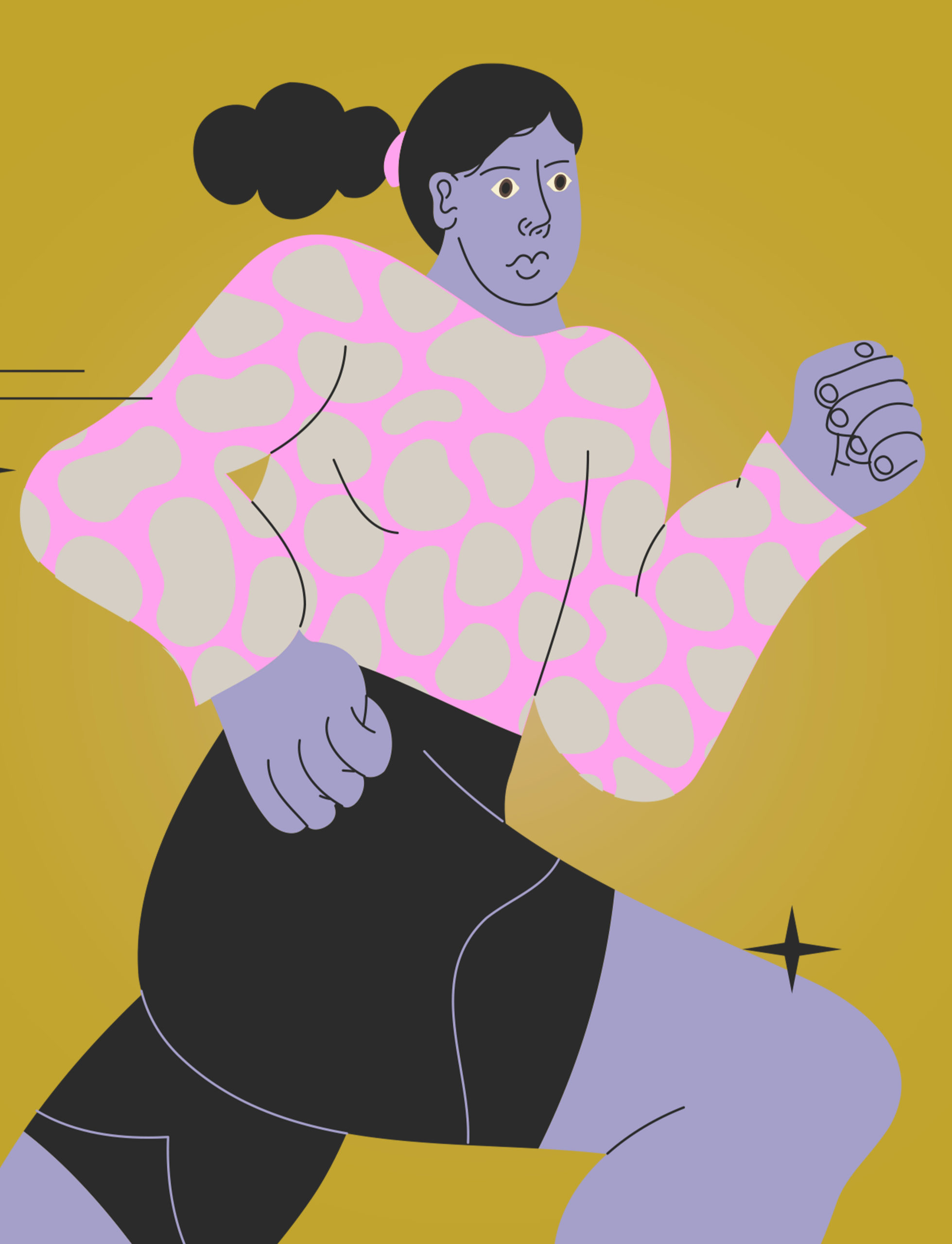
“I always thought I hated running,” said TV-producer Tali Walters, 35, who has been coming to Dash since it launched three years ago because she wanted to do more cardio but couldn’t bear “the shouty-ness of most HIIT and spin classes”. “Dash let me discover running isn’t all about painful sessions of pounding the ground for hours on end,” she explained . “It can be super fun and done in short, powerful bursts.” Its efficiency is what lures her back: “You burn serious calories in a very short space of time. It’s outdoors and it’s never torturous like an endurance run. You enjoy it in the moment, you don’t have to wait for endorphins after.”
“Sprinting is fast and furious with an instant high,” agreed Becca. “I was training to run a sub-4hr marathon, but running fast intimidated me – I just didn’t know what I was doing. Dash taught me techniques that I now use in all aspects of my training. I can still hear Sarada’s voice encouraging me to use my arms to drive my legs – it’s stuck with me ever since.”
A “pure sprint” class at Dash often begins with technique drills, with Sarada and her coaching team providing precise feedback. Runners then implement this advice – which could include tweaks on posture or how to land correctly on your feet – into a series of sprints, which can range in distance from 60m to 200m, depending on ability.
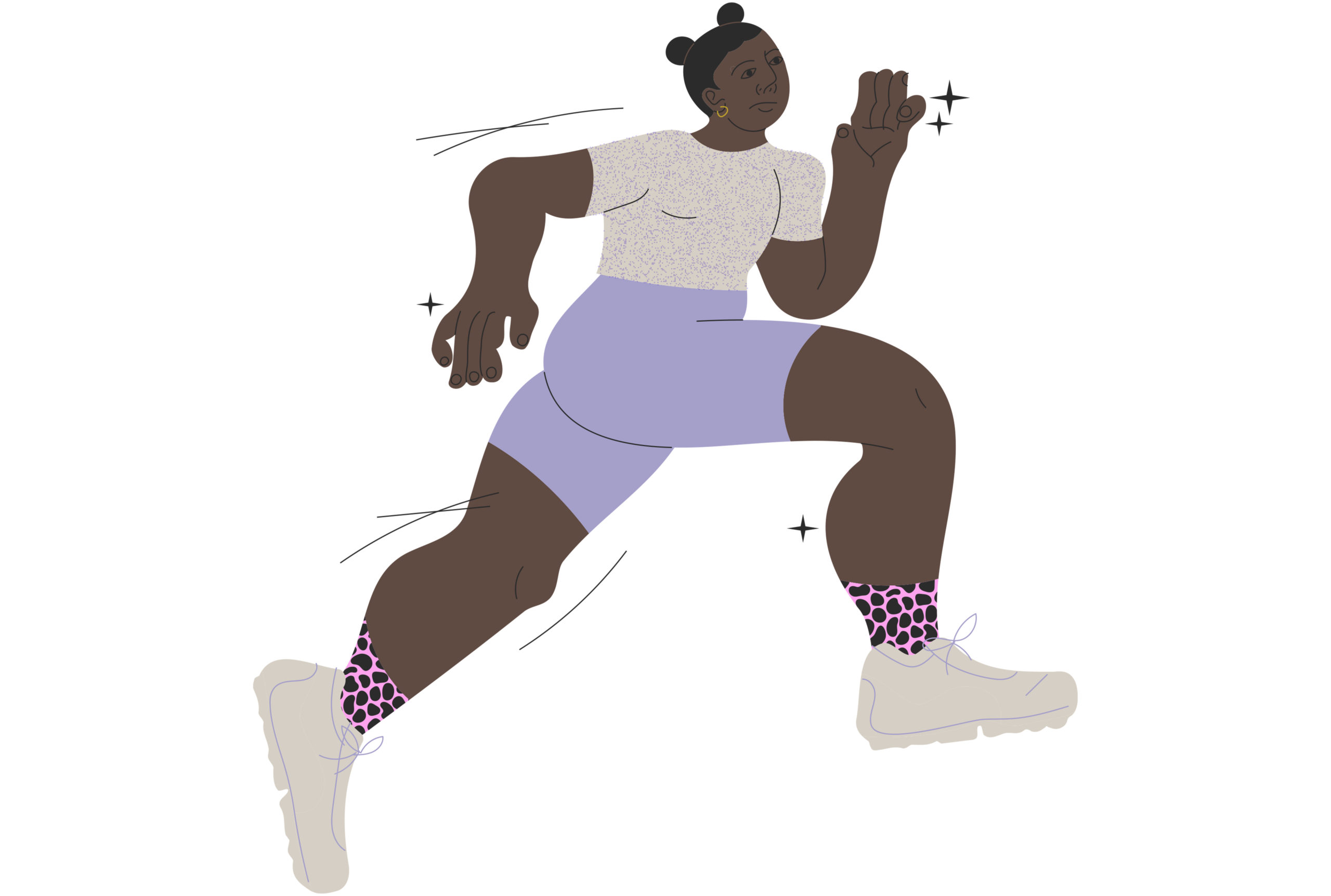
The fitness gains are impressive, remarked finance manager Rachel Ferguson, 29, who initially signed up to enhance her half-marathon training. “Sarada helped me realise I had a lot more speed in me, and thanks to her advice and the confidence gained, I knocked seven minutes off my half-marathon PB.” And rugby player Emily, who plays for London Welsh, has found her pitch performance significantly improved after just eight weeks of training: “I can literally feel the difference in how my body moves when I run and the speed it creates. Dash is still a tough fitness session, but sprinting no longer feels like it’s impossible to achieve.”
Given the success of Dash, Sarada is now exploring ways to expand its reach. “We are working with a tech investor to adapt what we do on the track into an online personal coach.” Other Dash dreams include larger-scale events that provide a tantalising taster of what sprinting can be, plus the possibility of franchising, and even opening a studio complete with a 60m track.
However, growing the community on the ground remains an integral aim for Sarada. It’s why Dash is currently based in Paddington Rec. So many tracks are on the outskirts of London, which can be hard to get to if you don’t have a car.” The £10 price of a 45-minute class is also noteworthy when many boutique studios in London are charging double that for spin classes or bootcamps. “Over the years I have tried many classes and groups and you get a feel for what’s good, who’s real, who cares,” said Emily. “I couldn’t speak more highly about Dash.”
It’s clear inclusivity matters deeply to Sarada, and while a sprint may be over in less than a minute, Dash really is about making every second not just count, but feel good too. “Ultimately, what we want is to create a safe space for people to sprint in a way they feel confident and it feels comfortable,” she said. There’s little doubt Sarada has achieved exactly that.
